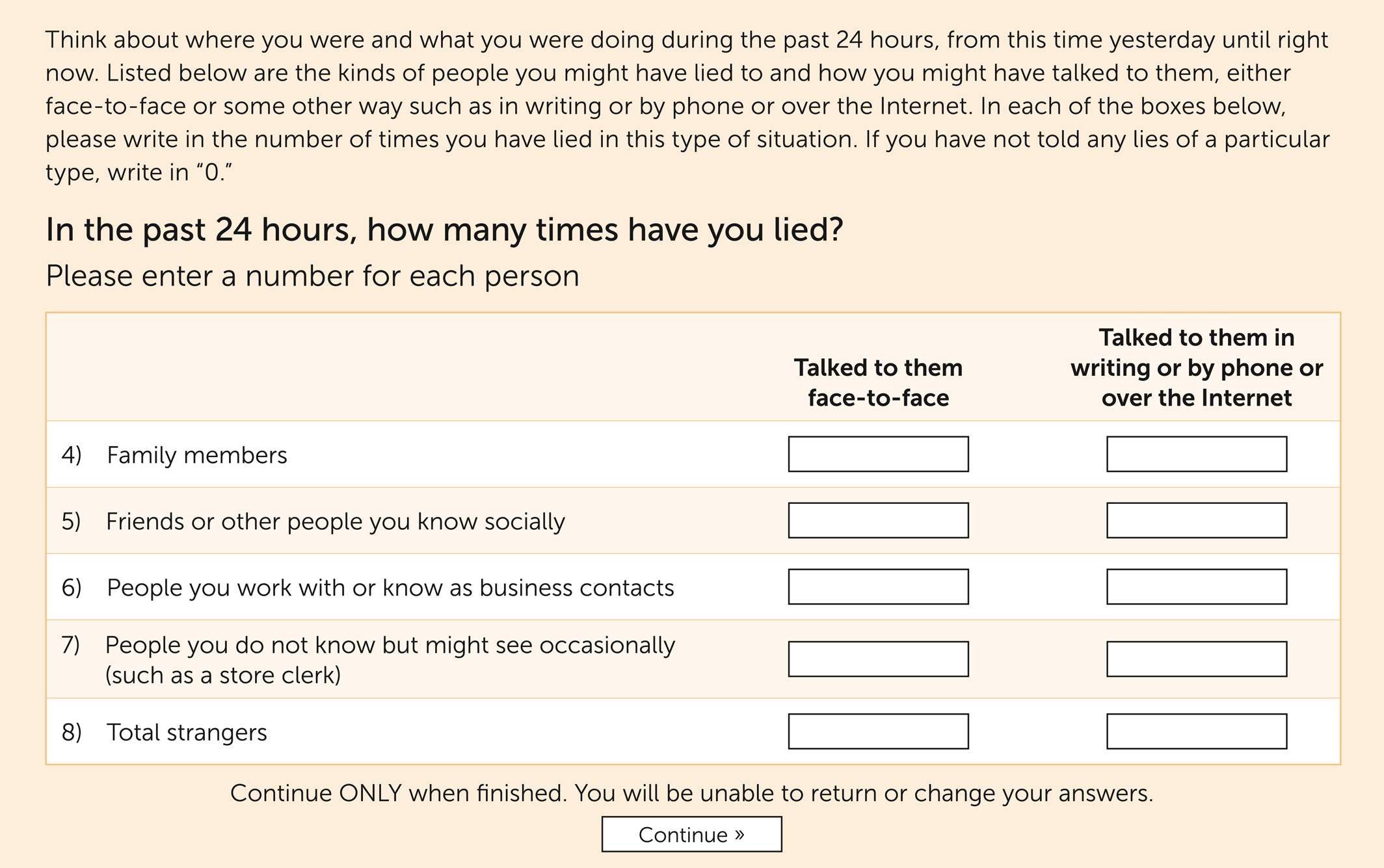
Deception has been defined by Vrij ( 3) as “a successful or unsuccessful deliberate attempt, without forewarning, to create in another a belief which the communicator considers to be untrue.” Some studies report that people tell an average of two lies per day ( 4, 8, 9). Considerable research has focused on the normative aspects of lying ( 1, 3, 4, 5, 6, 7). If you're worried about your child's behaviour or suspect your child is struggling with any of the conditions outlined above, it's important to seek help from a mental health professional.Ī confidential call with an advisor will help you understand your options and help you find the best support for your child.The frequency with which people lie varies ( 1, 2). Children who have experienced trauma may struggle with trust and difficulty connecting with others.īy understanding these underlying issues, parents and guardians can help their children to get the support they need to overcome their challenges and live happy, healthy lives. They may also lie or steal to avoid facing their traumatic experiences. Children who have experienced trauma, such as abuse or neglect, may lie or steal to cope with their feelings of fear, sadness, and anger. Trauma is another underlying issue that can cause children to lie and steal. Children with ADHD may also have difficulty with impulse control, making it harder for them to resist the urge to lie or steal. They may have difficulty focusing and paying attention and struggle to control their behaviour. Children with ADHD may lie or steal impulsively without thinking about the consequences. Children with depression may struggle to connect with others and find joy in life.Ī third underlying issue that can cause children to lie and steal is attention-deficit/hyperactivity disorder (ADHD).


They may also steal or lie to escape their problems or feel a sense of control. Children with depression may steal or lie to avoid facing their feelings of sadness and hopelessness. Children with anxiety may feel like they can't handle the stress and pressure of everyday life, and lying or stealing can give them a sense of relief.Īnother underlying issue that can cause children to lie and steal is depression. They may also steal or lie to feel a sense of control or power over their lives. Children struggling with anxiety may lie or steal to avoid difficult situations. One of the underlying issues that can cause children to lie and steal is anxiety. However, if lying and stealing happen often, it could indicate a more serious issue. These behaviours are usually considered normal and developmentally appropriate in young children. Children may steal to test boundaries or because they are curious about what happens when they do. Stealing is also common in children and often begins around the age of five. For example, a child may lie to protect themselves or to avoid punishment. Lying is a common behaviour in children and often starts around the age of three. However, these behaviours can also indicate a serious underlying issue, so parents and guardians need to be mindful of the warning signs.įirst, it's important to understand the difference between typical lying and stealing and when it becomes problematic. Lying and stealing are sometimes considered normal for children. In some cases, medication can also be effective in addressing underlying issues. Working with a child and adolescent psychiatrist or psychologist can help your child manage their emotions and develop positive lifelong skills. Research has shown that children who lie and steal may have underlying conditions such as conduct disorder, ODD, or an emerging personality disorder. Emotional problems, peer pressure, low self-esteem, bullying, or neglect could prompt a child to act out and steal. Similarly, finding out your child or teenager is stealing can be understandably concerning.

If your child frequently lies and it is getting them or others in trouble, or if the lying is accompanied by depression, lack of empathy, low self-esteem, or intentional harm to others, it may be time to seek expert help. While it's normal for young children to lie because they can't distinguish between reality and fantasy, persistent lying can be a sign of an underlying issue.Ĭhild and adolescent lying can result from multiple factors, including high parental expectations, fear of consequences, attention seeking, or low self-esteem.


 0 kommentar(er)
0 kommentar(er)
